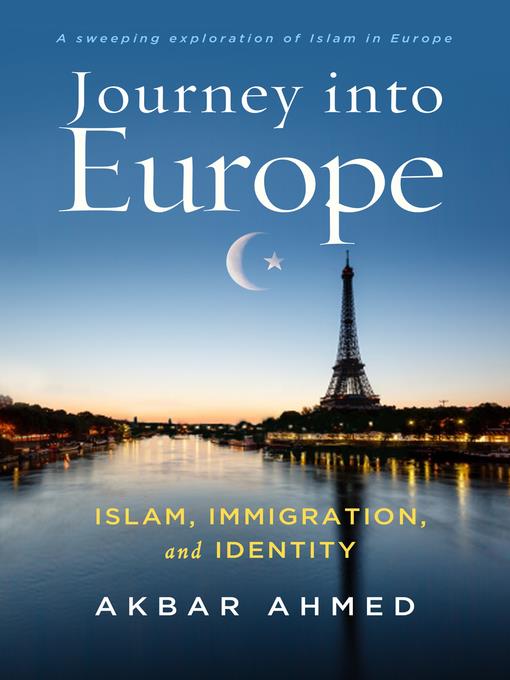
Journey into Europe
Islam, Immigration, and Identity
کتاب های مرتبط
- اطلاعات
- نقد و بررسی
- دیدگاه کاربران
نقد و بررسی

Starred review from December 11, 2017
Ahmed (The Thistle and the Drone), Ibn Khaldun Chair of Islamic Studies at American University, turns his eyes to Europe in this sweeping ethnographic exploration of Islam and its multiple narratives across the continent. The central thread woven throughout is the question of “primordial identity” (an imagined ethnic essence and tribal memory) in the modern world. Through interviews, surveys of history, and reflections on his own experience, Ahmed argues that Islamic communities in Europe—whether they primarily identify as Muslim or European—need to turn away from these primordial identities and instead seek mutual flourishing through a “pluralist identity.” As a model, he examines Andalusian, Balkan, and Sicilian communities and identities that are defined by the coexistence of Jews, Christians, and Muslims. Ahmed is perhaps a bit utopian, and the language of the book can be simplistic when it frames Islam and Europe as opposing and separate entities. Nonetheless, this highly instructive work deserves careful and critical attention as people across the world wrestle with how to balance community with difference in an age of reinvigorated tribalism.

January 1, 2018
A dense but rewarding anthropological account of European reactions to Islam and Muslim immigrant communities, and vice versa.In Germany, reports the newsmagazine Bild, 110,000 jobs rely on the doner kebab--a Turkish version of the gyro, that is--alone. That the food has been so widely accepted does not automatically translate into easy acceptance of other Islamic artifacts, though, to say nothing of people. As Ahmed (Chair, Islamic Studies/American Univ.; The Thistle and the Drone: How America's War on Terror Became a Global War on Tribal Islam, 2013, etc.) argues, this speaks to the enduring strength of tribal separatism. The term "tribalism" has long been reserved for so-called primitive societies, but "the classical attributes of tribes are present in modern European societies, however heavily they are buried or disguised, in cultural norms, language, rhetoric, symbolism, and assumptions of who 'we' are." When such tribes meet with Islamic ones with their own assumptions of ethnic identity, then trouble is bound to ensue, as it certainly has, with many manifestations. One, for instance, is the refusal of Turkish players on Hungarian soccer teams to sing the national anthem--and no wonder, given that "the anthem depicts the 'wild Turks' as an excrescence, a 'barbarian nation.' " It's easy to see how a Hungarian nationalist might react to such a response. Ahmed ventures that given the experiences of Eastern European societies with predatory neighbors--i.e., Germany and Russia--such expressions of "primordial tribal identity" are not unexpected. The author examines differing ideas of nationhood among the European powers, such as the marked distinction between French and British ideas of imperial management and citizenship. More pointedly, he considers how Muslim immigrants with "a tribal background," confronting prejudice and discrimination, might develop primordial responses of their own to the insult on their honor--responses that include being ripe for recruitment into terrorist organizations, especially by way of "kinship and neighborhood links, as in areas like Molenbeek in Brussels."Academic but of considerable interest to any student of current affairs and geopolitics.
COPYRIGHT(2018) Kirkus Reviews, ALL RIGHTS RESERVED.

























دیدگاه کاربران